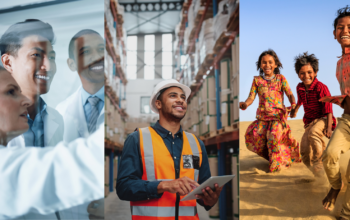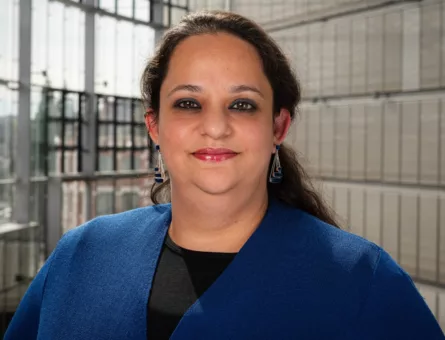Komal leads our Intellectual Property and Trade Policy portfolio.
She works with UN member states and international and regional organizations to promote global health solutions by advocating international best practices for IP protection, removing market access barriers, and creating a sustainable ecosystem to incentivize innovation.
Her experience as a corporate attorney and trusted government advisor enables Komal to resolve complex domestic and international policy and business challenges in numerous sectors.
Prior to joining IFPMA, Komal led the United States Patent and Trademark Office’s attaché program in South Asia. She was the principal strategic advisor to the US Government (USG) on all aspects of Intellectual Property for India, Pakistan, Sri Lanka, Nepal, Bangladesh, Bhutan, Afghanistan, and Maldives.
In addition, Komal led negotiations with South Asian Governments relating to IP policy initiatives of the USG. Komal has also developed and executed several technical assistance and capacity building programs aimed at creating a sustainable innovation ecosystem that promotes, protects, and enforces IP.
She holds a Master of Law (LLM) from the George Washington Law School and an Bsc LLB (Hons) in IP from West Bengal National University of Juridical Sciences.
More from Komal
How IP enables accelerated progress on the Sustainable Development Goals
The Sustainable Development Goals (SDGs) emerged from a collective ambition to create a blueprint for global action, charting the path to a better future for everyone. But, with just over five years to 2030, progress is lagging. Collective, concerted effort, supported by technological solutions, is required to achieve these goals. To unlock such innovations, the...
Read more
Why we must remove barriers to trade to achieve vaccine equity (Step #3)
To put an end to the pandemic, industry was tasked with manufacturing and supplying billions of COVID-19 vaccines, starting from zero. This monumental task is on its way to being achieved, with 11 billion doses forecast for the end of 2021[1]—enough for the world’s adult population, according to the World Bank. However, trade restrictions, amongst...
Read more


